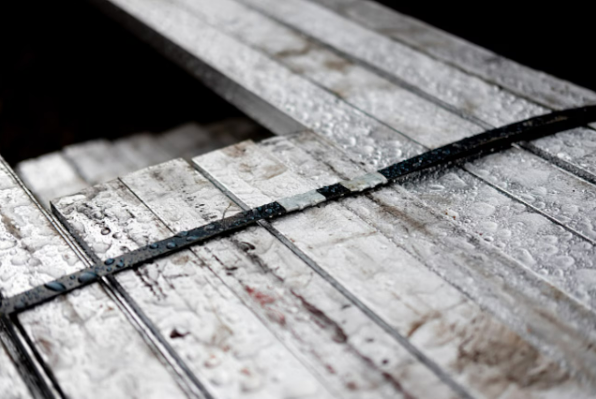Thousands of Pennsylvanians could lose their jobs in the aluminum extrusion due to dumping from foreign countries | Opinion
By Mark Butterfield
The Patriot News
Pennsylvania is justifiably proud of its manufacturing roots. But thousands of its skilled workers have lost or might soon lose their jobs because China, Mexico, Vietnam, Malaysia, and other countries are dumping their products into the U.S. at unjustifiably low prices.
Aluminum extrusions are particularly hard hit. These products, which are made by pushing heated aluminum alloy through a steel die, are in hundreds of everyday items like appliances, patio furniture, window frames, and cars. American manufacturers can compete with anyone in the world, but only if they have a level playing field. Unfortunately, when it comes to aluminum extrusions, we do not have that level playing field now.
Foreign producers have been selling excess extrusions at illegally cut-rate prices into the United States squeezing out domestic manufacturers. Nearly 3,000 workers are still employed by aluminum extruders in Pennsylvania, including more than 1,000 unionized workers. To keep their jobs, they have taken their fight to Washington D.C.
A coalition of 14 aluminum extruders and the United Steelworkers union (USW) are trying to stop illegally traded imports by persuading the federal government to impose antidumping and countervailing tariffs, as required by law. If imposed, the tariffs will stop the industry’s painful decline and protect American jobs.
U.S. extruders and their employees have been injured even though the market for aluminum extrusions is growing. From 2020 to 2023, demand for aluminum extrusions rose by 26 percent. But U.S. extruders’ sales and profits declined due to the illegally low-priced trade.
An extruder just across the Betsy Ross Bridge from Philadelphia in Pennsauken, N.J., Western Extrusions Corp., had to lay off dozens of workers, including many from Pennsylvania, and might have to lay off more unless the U.S. Commerce Department and the International Trade Commission intervene to enforce the law.
The facility is operating on a skeleton staff of about 50 people, a quarter the number that should be working there if there was fair competition from abroad. Since last spring, the number of employees has been cut in half. The facility employs just enough people to keep it open and has been losing money.
There’s a similar story on the other side of the state. Pennex employs hundreds of Pennsylvanians at its aluminum casting, extrusion and fabrication facilities, but not as many as it once did. One of Pennex’s plants in Pennsylvania has eliminated a full shift. A Pennex factory in Leetonia, Ohio, which is not far from Pennsylvania, recently dropped 24 hours-per-week of production. Unfairly traded imports were a major contributing factor.
Western and Pennex want to expand and add dozens of well-paying jobs for Pennsylvanians, but their investments are on hold until federal officials complete their inquiries into unfairly imported extrusions.
The extruders coalition and the USW are making progress. Federal agencies last year launched investigations into unfair trade that are scheduled to wrap up in the fall. U.S. lawmakers from both parties are demanding action to save jobs.
The Commerce Department has made affirmative preliminary determinations and calculated initial duty margins for these imports of up to a staggering 377 percent. In other words, foreign importers sell their products for 30-to-40 percent less than U.S. extruders, and sometimes even less. As a result, U.S. manufacturers lost out on at least $788.5 million in sales from 2020 to 2023. Aluminum extrusion is a $7 billion-a-year industry.
An important driver of demand for aluminum extrusions is the automotive industry. That demand will increase as more electric vehicle manufacturing comes online in the United States, but American extruders are being pushed out of this market by unfair import competition.
The Inflation Reduction Act encourages electric vehicle production, but unless the government acts, only a small percentage of that will include U.S-produced aluminum extrusions.
On a level playing field, U.S. extruders and their Pennsylvania workers cannot be beaten. Foreign countries must adhere to fair trade practices and refrain from undercutting American manufacturers through dumping and subsidies. The U.S. government must intervene to safeguard U.S. jobs, many of them in Pennsylvania.
Mark Butterfield is President of Manufacturing at MX Holdings, parent company of Pennex.


